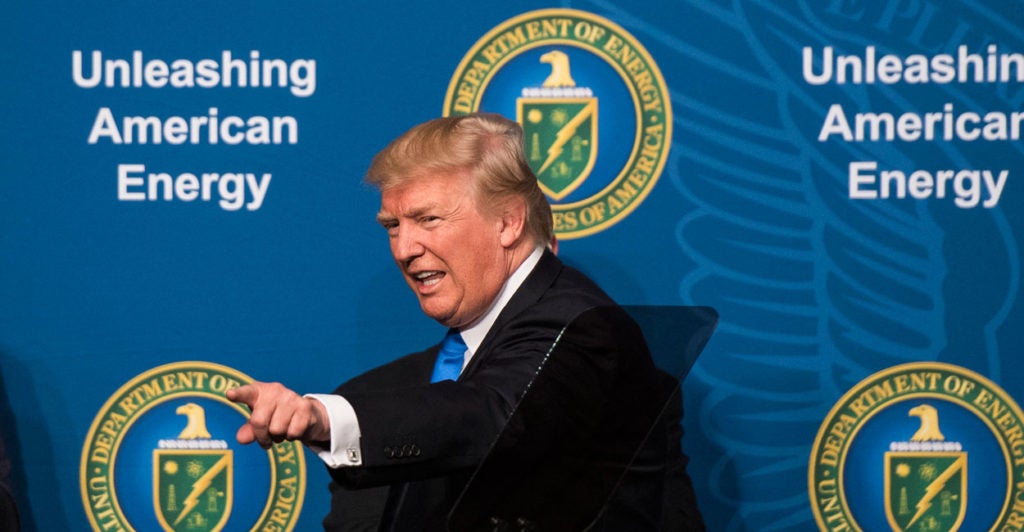The Trump administration’s new national security strategy emphasizes the importance of a strong economy to enhance national security. “America’s central position in the global energy system as a leading producer, consumer, and innovator,” the report says, “ensures that markets are free and U.S. infrastructure is resilient and secure.”
As a global energy leader already, the United States has demonstrated both the broad and household economic benefits of increased access to natural resources, innovation, competition, and choice.
President Donald Trump’s first national security strategy highlights five ways for the U.S. to improve its energy standing in the world: reduce barriers, promote exports, ensure security, attain universal access, and further our technological edge.
Some detail on how Congress and the Trump administration have a unique opportunity to capitalize on U.S. energy abundance:
Reduce barriers. In response to Trump’s executive order on “Promoting Energy Independence and Economic Growth,” the Environmental Protection Agency, Department of Interior, and Department of Energy released reports documenting agency actions that burden the safe development of domestic energy sources.
In many respects, these documents provide a useful road map to rolling back costly, ineffective regulations and expanding opportunities for new resource development and energy infrastructure. To provide the energy industry with more certainty, Congress should codify changes so they can’t be undone by an administration that is more hostile to energy production.
Promote exports. Providing more energy choices to both producers and consumers will generate jobs and grow the economy. Expediting the permitting process for liquefied natural gas exports is a commonsense reform that would improve national security by increasing global energy supplies and reducing the ability of any one nation to use its control of energy resources to threaten U.S. interests.
Embracing energy dominance should include imports, whether imported oil, ethanol, or solar panels. Cheaper imports would make American businesses more competitive and successful.
Ensure energy security. Many policies that harm consumers have been implemented in the name of improving energy security. Government planning, quotas, subsidies, tariffs, and other market-distorting policies have promoted favoritism, not energy dominance.
Competition and diversification can improve energy security, and the Trump administration should reduce impediments that thwart the private sector’s ability to properly protect the electricity grid and energy infrastructure.
Attain universal energy access. Energy touches every aspect of our lives, from providing a daily sense of comfort to powering the global economy. So having an energy platform that provides choices at competitive prices would only enhance the well-being of families and businesses across the country.
Given America’s energy wealth, the U.S. should be a major supplier to meeting energy needs in the developing world, where more than 1.2 billion people (17 percent of the global population) don’t have access to reliable electricity.
Further America’s technological edge. As demonstrated with smart drilling technologies, innovation unlocks new resources, supplies affordable power, and generates new employment opportunities. Government favoritism, however, is one major source of pumping the brakes on technological innovation.
When the government picks winners through the tax codes or bails out uneconomical power plants, companies focus more on obtaining the next handout and less on reducing costs to be competitive in a market without subsidies.
A variety of energy sources and technologies provide Americans with dependable electricity and transportation fuels. Whether it is conventional fuels, nuclear power, renewable technologies, batteries, or a concept still developing in a lab, America’s entrepreneurial spirit will drive innovation forward without the help of Washington.
As my Heritage Foundation colleague Nile Gardiner writes, Trump’s national security strategy reasserts American leadership.
Thanks to the free market, the U.S. is already a global energy leader. These policy reforms will ensure that America stays there.
